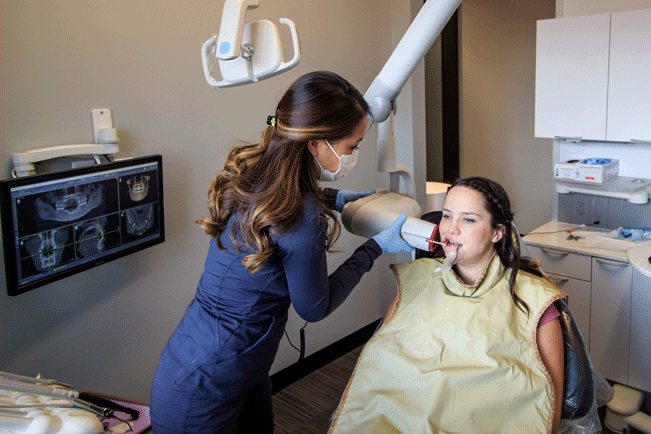The Importance Of Brushing, Flossing, And Rinsing
If you’re like most people, you probably don’t give much thought to your dental hygiene. But the fact is that it’s an incredibly important part of our overall health and wellbeing. Poor oral health leads to a myriad of issues, from bad breath, tooth decay and cavities to gum disease. Dentist Cambridge will take an in-depth look at the importance of proper dental hygiene—including how you can establish good habits that will protect your teeth and gums for years to come!
Maintaining good oral hygiene is crucial to a healthy mouth and overall well-being. Brushing your teeth twice a day with fluoride toothpaste helps remove plaque, prevent cavities, and freshen breath. Flossing daily is important to remove plaque and food particles from between your teeth that brushing alone can’t reach. Rinsing with mouthwash can also help eliminate bacteria that cause bad breath and gum disease. By making these habits a part of your daily routine, you’ll not only improve your oral health but also reduce the risk of developing serious health problems like heart disease and diabetes. So don’t forget the basics of proper oral hygiene and keep that smile healthy and bright!

Taking good care of your toothbrush is an important part of maintaining your oral hygiene. After all, your toothbrush is your faithful companion in the fight against plaque and gum disease. To keep it clean, make sure to rinse it thoroughly after each use and store it upright in a well-ventilated area to allow it to air dry. Don’t keep it in a closed container or cover it with a cap, as that can promote the growth of bacteria. It’s also important to replace your toothbrush regularly, ideally every three to four months, or sooner if the bristles become frayed or the brush head becomes discolored. By following these simple tips, you can ensure that your toothbrush stays clean and effective, and that your smile stays bright and healthy.
Electric toothbrushes have become increasingly popular over the past few years, and for good reason. These brushes offer many benefits over manual toothbrushes, such as better plaque removal, easier access to hard-to-reach areas, and even improved gum health. In addition, electric toothbrushes take the guesswork out of brushing by providing built-in timers and pressure sensors. However, it’s important to know how to properly use an electric toothbrush in order to reap these benefits. Be sure to hold the brush at a 45-degree angle and let the brush do the work, avoiding too much pressure or scrubbing too hard. With these tips in mind, an electric toothbrush can be a great addition to anyone’s oral health routine.
…
